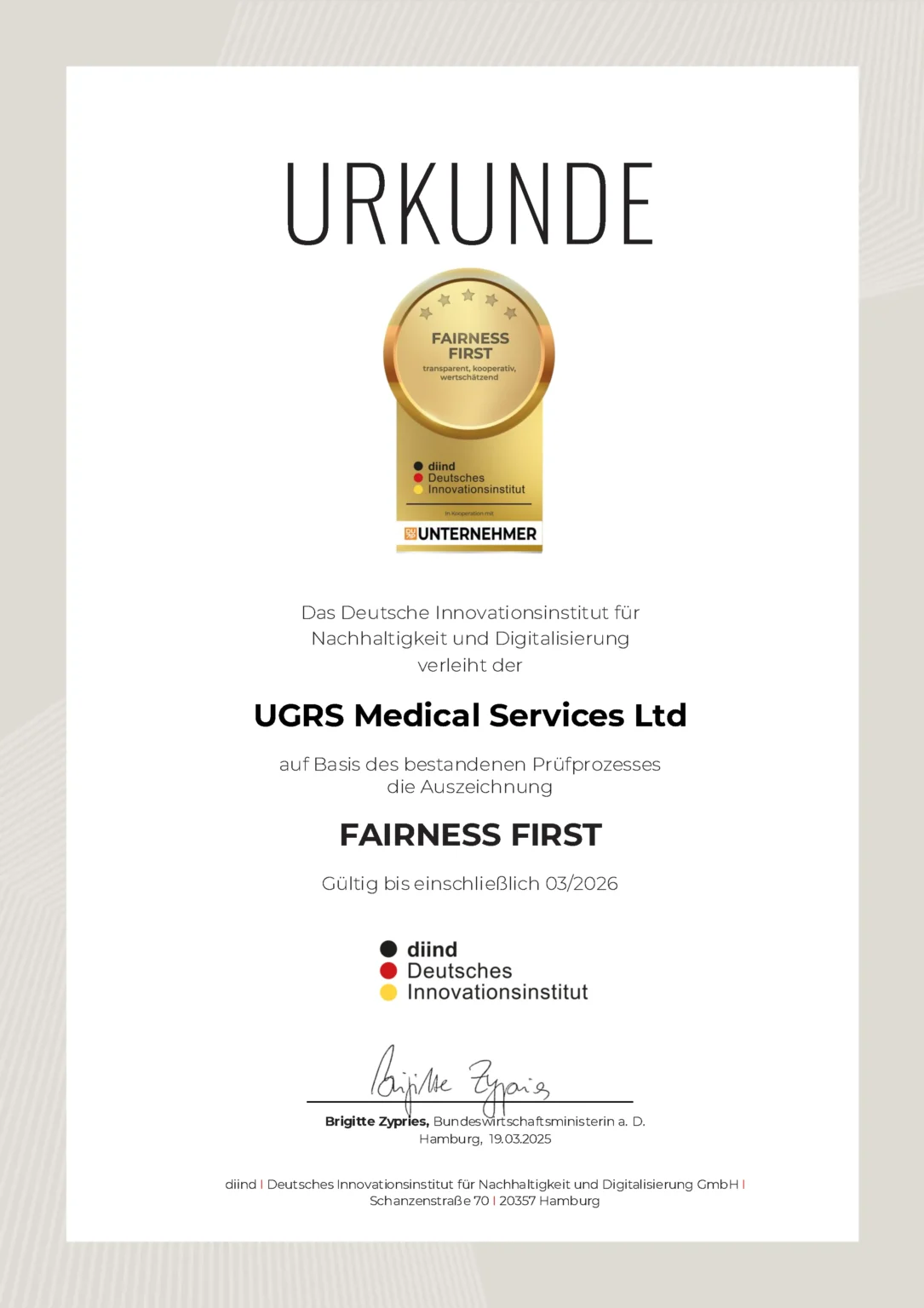Home » UGRS.Knowledge – Glossary on Penis Enlargement, Anatomy & Urology » Testosterone deficiency
Testosterone deficiency
Testosterone deficiency means that the body produces too little of the male sex hormone testosterone. This hormone is responsible for many important processes in the body. A deficiency can have an impact on physical and mental well-being.
What is testosterone?
Testosterone is a hormone, it is THE male sex hormone, but is also produced in small amounts in women.
In men, testosterone is mainly produced in the testicles. For example, it is responsible for
- the development of the male sex organs
- the voice change during puberty
- beard growth and other body hair
- the formation of muscle mass
- the bone density
- the desire for sex (libido)
- sperm production
- the mood and general well-being
Testosterone also plays a role in women – e.g. for libido, bone strength and energy.
What does testosterone deficiency mean?
A testosterone deficiency (technical term: hypogonadism) means that there is permanently too little testosterone (more precisely: freely available testosterone) in a man’s blood. This can lead to some bodily functions no longer working properly.
Testosterone levels fall slowly over the course of a lifetime – especially from around the age of 40. However, if it is significantly too low and symptoms occur, this is referred to as a deficiency.
Causes of testosterone deficiency
A lack of testosterone can have many different causes. There are two main forms:
1. primary hypogonadism
Here the cause lies in the testicles themselves – they produce too little testosterone. Possible reasons:
- Congenital diseases (e.g. Klinefelter syndrome)
- Damage caused by mumps, injuries or radiation
- Side effects of certain medications
- Age-related wear and tear
- Injuries (e.g. sports accident)
2. secondary hypogonadism
In this case, the problem is not the testicles themselves, but a part of the brain that produces control hormones for the gonads. First and foremost the so-called pituitary gland(hypophysis). Causes can be:
- Tumors or injuries in the brain
- Chronic stress
- Severe overweight
- certain diseases (e.g. diabetes, depression)
- Alcohol abuse
- extreme diets or eating disorders
Often there is a combination of several factors – for example in older men.
Symptoms: How do you notice a testosterone deficiency?
A lack of testosterone can manifest itself in very different ways. The symptoms usually develop over a longer period of time. Common signs are
Physical symptoms
- less muscle mass and strength
- more body fat, especially on the stomach
- Reduction in body hair
- Less beard growth
- Osteoporosis (bone loss)
- Tiredness and exhaustion
- Hot flushes or sweating
- Reduced desire for sex (libido)
- Erection problems
- Small or very soft testicles
- Less sperm
Mental symptoms
- depressive moods
- Irritability
- Sleep disorders
- Concentration problems
- Less drive or motivation
These symptoms are all possible, but typically do not all occur together.
How is a testosterone deficiency diagnosed?
If you suspect a testosterone deficiency, you should consult a urologist, andrologist or endocrinologist.
A blood test can help here:
The most important step is to measure the total testosterone in the blood, typically in the morning between 7 and 10 a.m., because the hormone concentration is at its highest in the morning.
A low level alone is not sufficient for a diagnosis. A testosterone deficiency requiring treatment is only diagnosed if symptoms are also present.
What can you do about testosterone deficiency?
The treatment depends on the cause of the deficiency.
The attending physician will decide what to do.
The medical information provided on this website is for general information purposes only and does not replace a personal consultation with our doctors. As a tertiary medical center, we are also available for second opinions.
© Copyright Jörg Hagen, Doctor
About the author
Jörg Hagen, doctor
The author Jörg Hagen has been the medical director of UGRS International Germany since 1995 and has over 30 years of experience in penis enlargement and complex urological issues. He is regarded as one of the leading experts in the interests of patients in Europe. His international activities, excellent diagnostics and legal successes in patient rights make his assessments particularly well-founded. Patients appreciate his scientifically based, discreet and trustworthy care. His articles are based on many years of practice and well-founded information at the highest level.
This content is for general information purposes only and does not constitute medical advice, diagnosis or treatment recommendations. It is in no way a substitute for a professional examination or treatment by a licensed physician. If you have any health complaints or uncertainties, please always consult a medical professional – especially if you have any questions about intimate surgery or sexual health.










